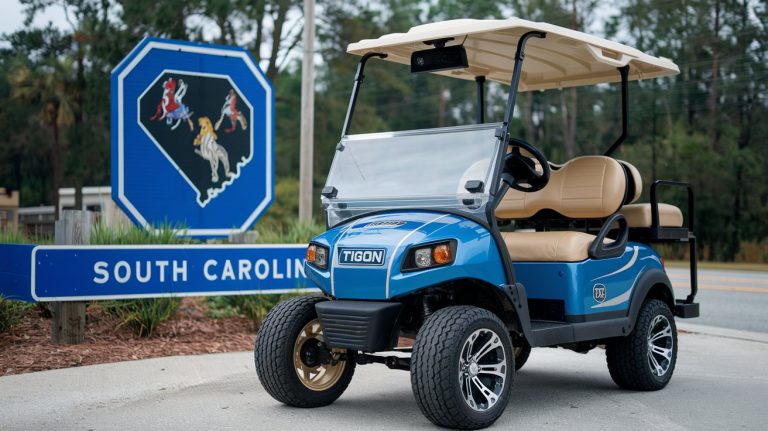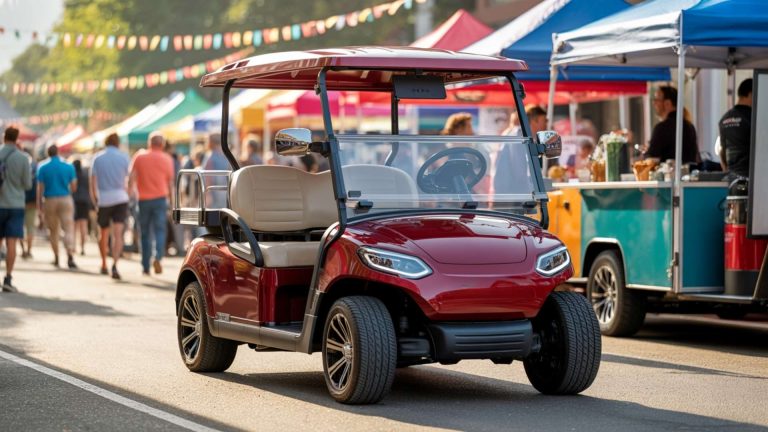
Street Legal Requirements in New Jersey Made Simple
Street Legal Requirements in New Jersey
Navigating the street legal requirements in New Jersey can be a bit overwhelming, but we are here to simplify it for you. Let’s dive into the essential information you need to know.
Understanding Vehicle Codes
In New Jersey, vehicles are categorized under various codes depending on their type and usage. These codes are crucial for understanding the specific requirements your vehicle must meet to be street legal. Here are some of the key codes:
| Vehicle Type | Code |
|---|---|
| Commercial Truck or Tractor | 11 |
| Taxi | 13 |
| Limousine | 14 |
| Aggregate Hauler | 16 |
| School Bus | 27 |
| Trailer | 29 |
| Tow Truck | 40 |
| Farm Truck | 52 |
These codes help to ensure that vehicles used for different purposes meet the necessary safety and operational standards.
Understanding these codes is vital for anyone looking to make their vehicle street legal in New Jersey. For example, if you’re interested in making a New Jersey street legal golf cart, you’ll need to be aware of the specific requirements and codes that apply to your vehicle.
Inspection Sticker Necessity
A valid inspection sticker is a must-have for any vehicle registered in New Jersey. The New Jersey Motor Vehicle Commission (MVC) mandates that all vehicles undergo regular inspections to ensure they meet safety and emissions standards. This requirement is not only for compliance but also for ensuring the safety of everyone on the road.
| Inspection Requirement | Frequency |
|---|---|
| Safety Inspection | Every 2 years |
| Emissions Inspection | Every 2 years |
It’s important to note that your vehicle must have a valid inspection sticker at the time of sale. In New Jersey, you cannot sell a vehicle without ensuring it has passed the required inspections.
If you’re driving a unique vehicle like a New Jersey street legal MSV, make sure to keep up with the inspection requirements to avoid any legal issues.
By understanding these vehicle codes and inspection requirements, we can ensure our vehicles are compliant with New Jersey’s street legal standards. For more information on making your vehicle street legal, check out our detailed guide on street legal NEVs in New Jersey.
Challenges with Golf Cart Registration
Navigating the registration process for golf carts in New Jersey can present some unique challenges. Understanding these obstacles and how to overcome them is essential for ensuring that your vehicle is compliant with street legal requirements in New Jersey.
State Vehicle Categories
In New Jersey, the categorization of vehicles plays a crucial role in determining whether a golf cart can be registered as street legal. The state’s vehicle code includes specific classifications for different types of vehicles, such as autocycles, motorcycles, and Low-Speed Vehicles (LSVs). Unfortunately, mainstream golf carts do not fit neatly into these categories, making it challenging to register them for street use.
New Jersey also has distinct codes for vehicles used for commercial purposes, such as Code 11 for Commercial Trucks or Tractors, Code 13 for Taxis, and Code 14 for Limousines. These codes further complicate the registration process for golf carts, as they do not align with the existing categories.
| Vehicle Code | Description |
|---|---|
| Code 11 | Commercial Truck or Tractor |
| Code 13 | Taxi |
| Code 14 | Limousine |
| Code 16 | Aggregate Haulers |
Due to these stringent vehicle categories, it is not possible to register a golf cart as street legal within New Jersey. This limitation necessitates exploring alternative registration options in other states.
Registration in Other States
For those determined to drive their golf carts on New Jersey roads, registering the vehicle in another state with more lenient regulations is a viable solution. States like Montana and South Dakota offer the possibility to register golf carts as street legal, providing the necessary title, registration, and license plate. Once registered, these vehicles can be driven on roads, highways, and city streets in New Jersey through registration reciprocity agreements.
New Jersey allows vehicles licensed in other states to be driven legally within its borders, provided the owner maintains residency in the registering state or registers the golf cart to an LLC in that state. This eliminates the need for title transfer and allows the vehicle to be operated without additional equipment or passing a New Jersey inspection.
For more information on the specific requirements and process, visit our detailed guide on New Jersey street legal golf carts.
By understanding the challenges of golf cart registration and exploring alternative options, we can ensure that our vehicles meet the street legal requirements in New Jersey. Don’t forget to check out our articles on New Jersey street legal LSVs and street legal NEVs for further insights.
Street Legal Golf Carts in New Jersey
Reciprocity Agreements
In New Jersey, owning a street-legal golf cart can be simpler than you might think, thanks to reciprocity agreements. These agreements allow vehicles registered in other states to legally operate on New Jersey roads. If your golf cart is registered in a state that has a reciprocity agreement with New Jersey, you can drive it here without needing to meet additional requirements or undergo a New Jersey-specific inspection.
Reciprocity agreements are particularly beneficial for those who maintain residency in another state or have their golf cart registered under an LLC in a different state. This can eliminate the need for transferring the title or making your golf cart compliant with New Jersey-specific regulations.
For more information on golf cart registration and legal driving in New Jersey, check out our article on New Jersey street legal golf carts.
 Equipment Requirements
Equipment Requirements
Although reciprocity agreements make it easier to drive out-of-state registered golf carts in New Jersey, it’s important to understand the minimal equipment requirements if you plan to use your golf cart on New Jersey roads. Here is a general checklist of equipment that your golf cart should have to meet basic street-legal standards:
| Equipment | Requirement |
|---|---|
| Headlights | Functional and properly aligned. |
| Taillights | Red lights visible from the rear. |
| Turn Signals | Front and rear indicators. |
| Mirrors | At least one rearview mirror. |
| Horn | Audible from a reasonable distance. |
| Seatbelts | For all passengers. |
These requirements ensure that your golf cart is safe to operate on public roads. However, if your golf cart is registered in a state with a reciprocity agreement, you might not need to meet New Jersey’s specific equipment rules.
For more details on making your off-road vehicle compliant, visit our page on New Jersey street legal LSVs.
By following these guidelines and understanding the reciprocity agreements, we can make sure our golf carts are ready to hit the New Jersey roads legally and safely. For additional advice on making other types of vehicles street-legal, check out our article on street legal NEVs in New Jersey.
Off-Highway Vehicle Regulations
Navigating the regulations for off-highway vehicles in New Jersey can be challenging. Here’s a breakdown of what you need to know to keep your off-highway vehicle compliant and road-ready.
Limited Driving Permissions
In New Jersey, off-highway vehicles that are not registered as street legal are allowed on public roads only for specific purposes, such as crossing. This limited permission comes with stringent rules to ensure safety.
- Crossing Public Roads: Off-highway vehicles can cross public roads but must adhere to specific guidelines.
- Helmet Requirement: Riders must wear helmets when operating these vehicles on public roads.
- Headlights: Vehicles must have their headlights on from sunrise to sunset to enhance visibility.
Specific Equipment Needs
To meet the street legal requirements in New Jersey, off-highway vehicles must be equipped with certain features. These requirements ensure that the vehicle is safe for use on public roads and meets the state’s regulations.
| Equipment | Description |
|---|---|
| Headlights | Must be operational from sunrise to sunset. |
| Taillights | Essential for visibility from behind. |
| Brake Lights | Required for signaling stops to other drivers. |
| Turn Signals | Needed to indicate direction changes. |
| Horn | Must be functional to alert other road users. |
| Rearview Mirrors | Necessary for providing a clear view of traffic behind. |
| Proper Registration | Must be registered with the New Jersey DMV. |
For more detailed information on making your vehicle street legal, check out our articles on New Jersey street legal NEVs and New Jersey street legal golf carts.
Meeting these specific equipment needs is crucial. Failing to comply can result in fines, penalties, and even the impoundment of your vehicle. For more tips on ensuring compliance, visit our guide on street legal LSVs and New Jersey street legal MSVs.
Making a Golf Cart Street Legal
Navigating the path to making a golf cart street legal in New Jersey can seem challenging, but understanding the essential requirements and cost considerations can simplify the process.

Essential Requirements
To make a golf cart street legal in New Jersey, it must meet specific equipment and registration criteria outlined by the New Jersey Department of Motor Vehicles (DMV). Here are the key requirements:
| Equipment | Requirement |
|---|---|
| Headlights | Must include both high and low beams. |
| Taillights and Brake Lights | Essential for visibility and safety. |
| Turn Signals | Required for indicating direction changes. |
| Horn | Must be loud enough to be heard by other vehicles. |
| Rearview Mirrors | At least one mirror is mandatory. |
| Proper Registration | The golf cart must be registered |
GET THE GOLF CART LSV AT THE RIGHT PRICE!
Tigon Golf Carts proudly offers 0% Vehicle Financing, making it easier than ever to own your dream golf cart. With flexible payment options and competitive rates, we ensure that Upgrading or Purchasing for the first time is not only exciting but also financially feasible for our customers, allowing you to hit the road in style without breaking the bank.














